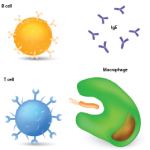TABLE 3: Indications and Recommendations for B Cell–Depletion Therapy
Use
- FDA approved for the treatment of RA patients refractory or unable to use anti-TNF
- Other autoimmune diseases when conventional therapy fails or has unacceptable toxicity: SLE, MS, ANCA-vasculitis, ITP, etc.
Screening prior to use of rituximab
- History of severe, unusual, or frequent infections
- History of high risk for HIV or tuberculosis
- Serology for hepatitis B (HBsAg, anti-HBs, anti-HBc)
- Serology for varicella-zoster virus (VZV) for patients who have not had chickenpox or been immunized should be considered in patients who are heavily immunosuppressed
- IgM, IgG, IgA levels (and yearly with ongoing treatment)
Immunization
- Avoid live virus vaccines
- If possible, complete immunizations one month prior to starting rituximab
- After rituximab, continue to administer recommended vaccines, including yearly influenza vaccine, but try to give as late as possible after the last rituximab dose
Prophylaxis
- Influenza: Consider antiviral chemotherapy during outbreak in selected patients
- Hepatitis B: Patients at high risk for reactivation, consider prophylaxis with lamovudine
- VZV: Post-exposure prophylaxis should be considered in seronegative patients who have additional risk factors
Research Areas
- Better understanding of dosing and frequency of treatment
- Consider monitoring of B-cell counts on a case-by-case basis
- Use for induction versus maintenance with chronic B-cell depletion
Another question that frequently arises is whether it is necessary to monitor B-cell counts. In large series of RA patients, there was no clear temporal relationship between peripheral B-cell return and loss of response, making such a recommendation difficult to substantiate. On the other hand, the detection of residual B cells using high sensitivity flow and the return of B cells increases the risk of relapse. In SLE, where incomplete B-cell depletion is more common, I routinely assess for depletion (one to two months after therapy) and reconstitution (at least at disease flare or if repeat treatment is being considered). Is long-term depletion of B cells necessary to maintain clinical benefit? In RA, transient B-cell depletion can ameliorate disease for a prolonged period, but typically not indefinitely. Repeated courses of B-cell depletion can prevent disease relapse.10 However, the optimal timing of repeated B-cell depletion remains unclear. Given the heterogeneity in treatment responses, my approach is to tailor the treatment to the patient and consider repeat B-cell depletion when disease begins to relapse. Biomarkers to assess the need for re-treatment and even to stratify patients into those likely to respond to B-cell depletion in the first place are sorely needed. Recent reports do suggest that seropositive RA patients tend to have better responses to B-cell depletion.
